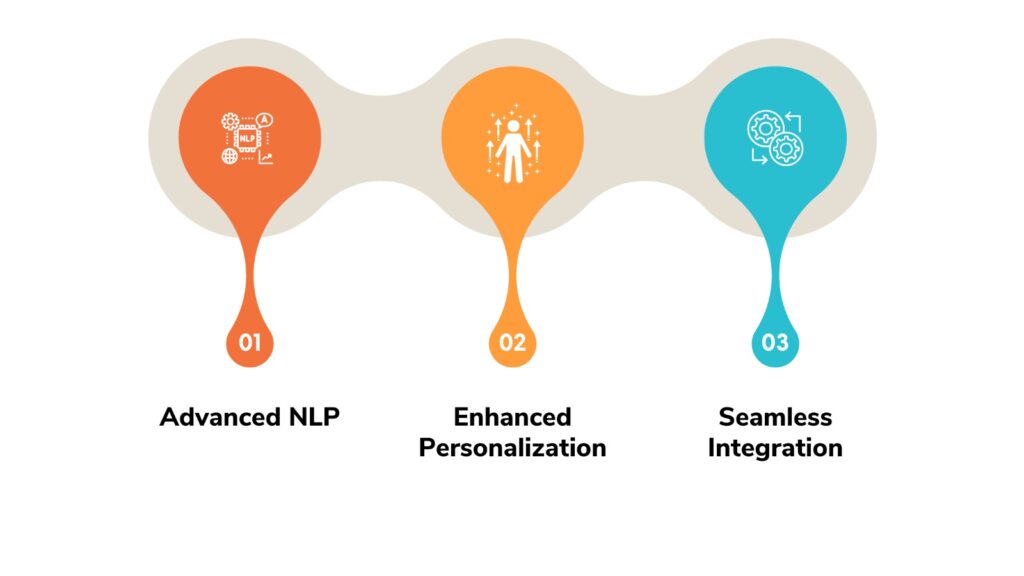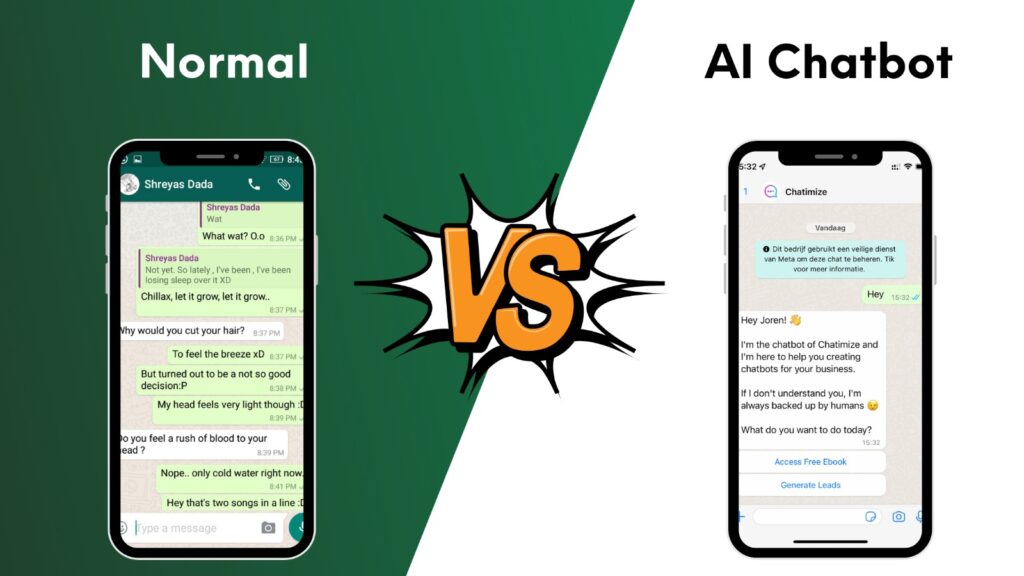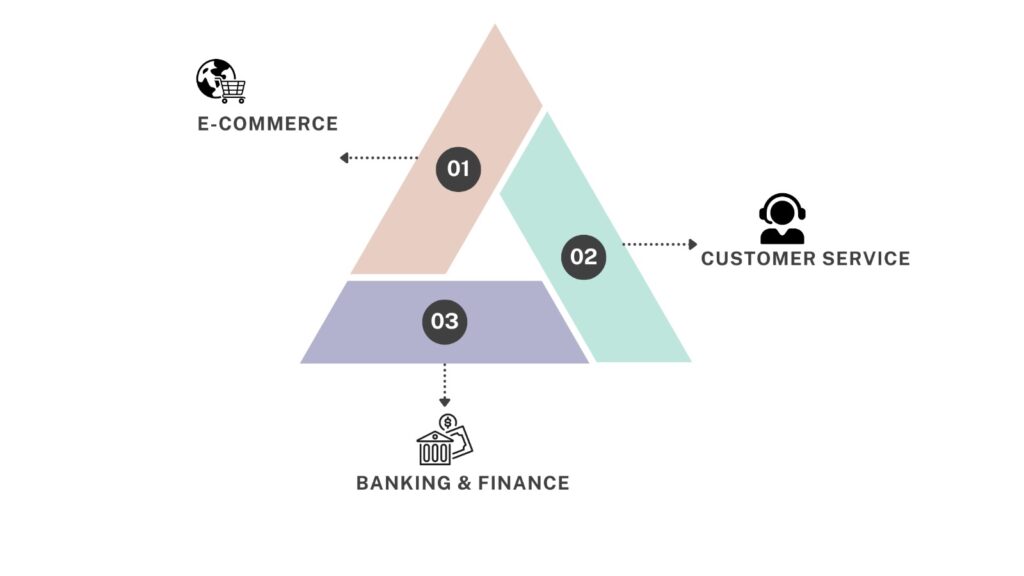WhatsApp AI chatbots are at the forefront of transforming how businesses interact with their customers. These advanced software programs utilize artificial intelligence (AI) to simulate human-like conversations within the WhatsApp messaging platform. From answering customer inquiries and processing orders to offering personalized recommendations, AI chatbots operate seamlessly and autonomously, enhancing customer service efficiency and satisfaction.
Understanding AI
Artificial Intelligence (AI) is the capability of machines to imitate human intelligence, enabling them to learn from data, adapt to new inputs, and perform tasks that typically require human intelligence. In the context of WhatsApp AI chatbots, this technology is applied through Natural Language Processing (NLP), allowing chatbots to understand and respond to user queries in a natural conversational manner.
Benefits and Target Audience
The adoption of WhatsApp AI chatbots offers significant advantages to both businesses and customers:
- Businesses: AI chatbots streamline customer service operations, boost sales through personalized recommendations, and provide round-the-clock support, thereby enhancing operational efficiency and reducing costs.
- Customers: They benefit from instant responses to inquiries, convenient interaction options, and personalized experiences tailored to their preferences and past interactions.
The Rise of AI in Business
AI chatbots play a crucial role by automating repetitive tasks, allowing human resources to focus on complex issues that require empathy and creativity.
The Future of AI Chatbots
Looking ahead, the evolution of AI chatbots on WhatsApp promises exciting advancements:

- Advanced NLP: Future chatbots will excel at understanding complex questions and nuances of human language, leading to more natural and engaging conversations.
- Enhanced Personalization: Leveraging user data, AI chatbots will offer increasingly tailored responses and recommendations, creating a more personalized customer experience.
- Seamless Integration: AI chatbots will integrate seamlessly with other business systems, such as Customer Relationship Management (CRM) platforms and inventory management systems, ensuring a cohesive and holistic approach to customer interactions.
Comparison: Normal vs. AI Chatbot
Distinguishing between traditional rule-based chatbots and AI-powered chatbots:

Feature
- Functionality
- Learning
- Complexity
- Personalization
Normal Chatbot
- Functionality
- Limited capabilities
- Handles simple queries
- Limited personalization
AI Chatbot
- Leverages AI for a dynamic conversation
- Learns and improves from user interactions
- Manages complex questions and requests
- Personalizes responses based on user data
Businesses Using AI Chatbots
AI chatbots find applications across various industries:

- E-commerce: Assisting with product inquiries, recommending products based on customer preferences, and facilitating purchases.
- Customer Service: Handling basic queries, scheduling appointments, and escalating complex issues to human agents as needed.
- Banking & Finance: Providing account information, processing transactions, and offering financial advice and support.
Use Case
Imagine an e-commerce store utilizing an AI chatbot to manage customer queries regarding product availability, sizes, and shipping details and provide personalized recommendations based on past purchases. This automation not only enhances customer satisfaction but also drives sales through targeted marketing efforts.
WhatsApp Business Solution Partners
Partnering with WhatsApp Business Solution providers facilitates the seamless integration of AI chatbots into business operations. These partners offer services such as:
- Chatbot Development and Deployment: Tailoring chatbot functionalities to meet specific business requirements.
- Integration with CRM Systems: Ensuring compatibility and data synchronization with existing customer management systems.
- Performance Monitoring and Optimization: Continuously optimizing chatbot performance to enhance user experience and operational efficiency.
Pricing and Choosing a Partner
Implementing WhatsApp AI chatbots involves various cost considerations:
- Development Costs: Initial expenses associated with creating and customizing AI chatbots to align with business objectives and customer expectations.
- Integration Fees: Costs related to integrating chatbots with existing systems to ensure seamless functionality across platforms.
- Maintenance and Support: Ongoing expenses for maintaining and updating chatbots to optimize performance and address evolving business needs.
- Customization and Scaling: Costs incurred for adapting chatbot capabilities as business requirements and customer demands evolve.
- Consultation and Training: Investments in strategic planning, consultation, and team training to maximize the effectiveness of AI chatbots.
Selecting the right partner is crucial. Factors to consider include the partner’s experience in AI chatbot development, understanding of specific industry needs, reputation, and customer reviews.
Future Trends in AI Chatbots
As AI technology advances, the future trends in AI chatbots on WhatsApp are poised to revolutionize customer interactions further:
- Virtual Shopping Assistants: AI-powered chatbots can guide customers through the shopping process, offering personalized recommendations and assistance in real time.
- Proactive Engagement: Chatbots will anticipate customer needs based on past interactions and proactively offer assistance, enhancing customer satisfaction and loyalty.
- Sentiment Analysis: AI chatbots will analyze customer sentiment during interactions, enabling businesses to address issues promptly and improve overall customer experience.
- Integration with Advanced Technologies: Imagine chatbots leveraging AI-powered image recognition for visual product searches or troubleshooting technical issues directly within WhatsApp through video calls.
These advancements will not only redefine customer service standards but also drive innovation across industries, making AI chatbots indispensable tools for businesses aiming to stay competitive in a digital-first world.
Frequently Asked Questions (FAQs)
WhatsApp AI chatbots are software programs that use artificial intelligence to simulate human-like conversations on WhatsApp, automating tasks like answering inquiries, processing orders, and providing personalized recommendations.
Businesses gain streamlined customer service, increased sales, 24/7 support, and cost efficiency. Customers enjoy instant responses, convenience, and personalized interactions.
AI chatbots use AI and NLP for dynamic, personalized conversations, learn from interactions, and handle complex queries. Traditional chatbots offer limited, rule-based responses.
Businesses can integrate AI chatbots with existing systems like CRMs through WhatsApp Business Solution Partners, who provide development, deployment, and optimization services.
Future trends include advanced NLP, enhanced personalization, seamless system integration, proactive engagement, sentiment analysis, and the use of technologies like AI-powered image recognition and video call troubleshooting.
Conclusion
WhatsApp AI chatbots represent a transformative tool for businesses seeking to enhance customer engagement, streamline operations, and drive growth. By leveraging AI-powered capabilities such as advanced NLP and personalized interactions, companies can deliver superior customer experiences within the familiar and convenient environment of WhatsApp. As technology continues to evolve, the future of AI chatbots on WhatsApp holds immense promise, paving the way for more intuitive, proactive, and seamlessly integrated customer interactions.

